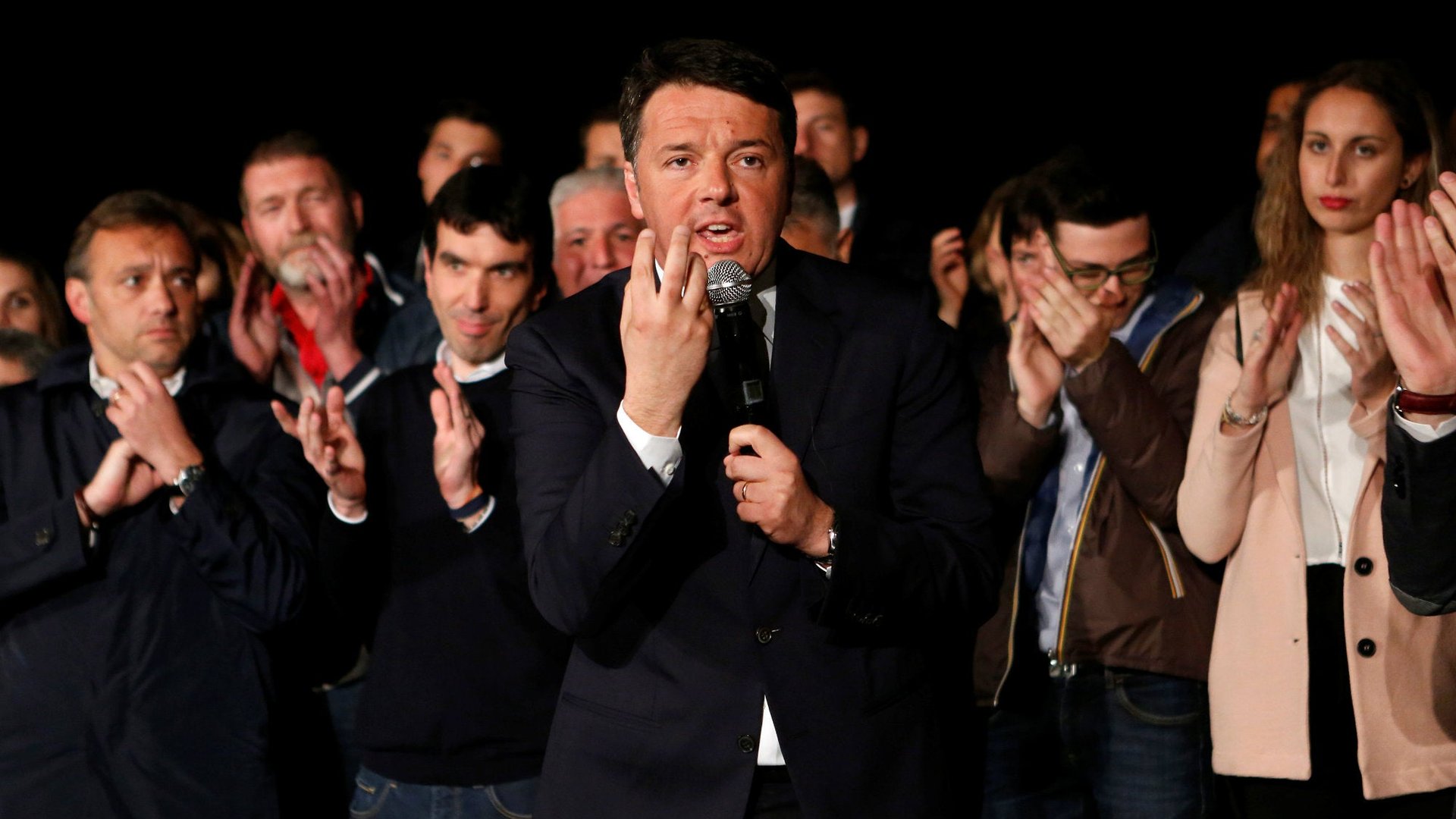Matteo Renzi’s new defense against anti-immigrant populists in Italy—act like one himself
Matteo Renzi is in trouble. Or, rather, he’s still in trouble—the former Italian prime minister resigned late last year, following the failure of a referendum on constitutional reform that became more of a vote on his leadership than on the constitution. Since then, he has been scrambling to build support for his center-left Democratic Party ahead of the next general election—likely this year or next—in which populist parties like the Northern League and Five Star Movement expect to gain ground.


Matteo Renzi is in trouble. Or, rather, he’s still in trouble—the former Italian prime minister resigned late last year, following the failure of a referendum on constitutional reform that became more of a vote on his leadership than on the constitution. Since then, he has been scrambling to build support for his center-left Democratic Party ahead of the next general election—likely this year or next—in which populist parties like the Northern League and Five Star Movement expect to gain ground.
Last month, Renzi’s rival center-right coalition recorded several important victories in local elections. Following the losses, some accused Renzi of reconsidering a pact like the one that first brought him to power: a deal with Silvio Berlusconi’s rightwing Forza Italia party. Though Renzi has denied it (link in Italian), he seems determined to outmaneuver his populist opponents in an unexpected way: by adopting aspects of their own anti-immigrant message.
In a now-deleted post on the Democratic Party’s Facebook page, Renzi was quoted as saying, “We do not have the moral duty to welcome [migrants]. But we have the moral duty to help them. And to help them for real in their own homes.”
The phrasing is striking because it employs rhetoric direct from the Northern League’s playbook. “Aiutiamoli a casa loro” (“Let’s help them in their own homes”) has long been the slogan of parties that propose giving money to the countries where migrants come from in an attempt to stop them from seeking refuge in Italy.
Although the message, which comes from Renzi’s forthcoming book, Avanti! (Ahead!), was online only briefly, it drew criticism from his own party, including former prime minister Enrico Letta, who called the statement “wrong.” Meanwhile, Matteo Salvini, leader of the Northern League, accused Renzi of copying him but not really meaning it.
Renzi, on Facebook, responded to the controversy by saying that he simply wants to redistribute the responsibilities of managing the recent influx of migrants. However, Emma Bonino, the former foreign minister, reminded him (link in Italian) that Italy has agreed to coordinate search-and-rescue operations in the Mediterranean.
Renzi’s new approach is in tune with the current political climate. Italians routinely cite immigration as the country’s second-biggest problem, after unemployment. The Five Star Movement opposes granting citizenship (link in Italian) to the children of immigrants born and raised in Italy.
Although Renzi’s use of the Northern League-like language may be new, he backed up the underlying idea with actions when he was in charge. In March 2016, his government was one of the promoters and signatories of the EU agreement to give funding to Turkey to halt the influx of Syrian immigrants into Greece (and, from there, the rest of Europe). Current Italian prime minister Paolo Gentiloni, who leads a government very similar to Renzi’s, signed an agreement with Libya in February, offering funds and training to stop boats from Libya traveling to Italian islands. International organizations decried the deal as reminiscent of Berlusconi’s deal with Muammar Gaddafi, which led to the creation of prisons in Libya to hold migrants.